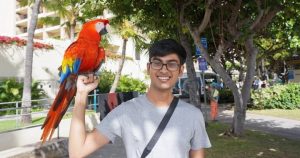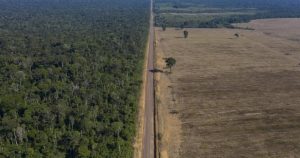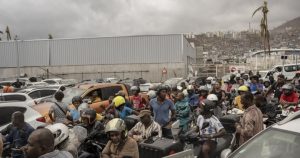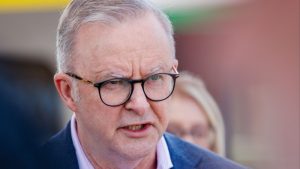China continues rapid expansion of nuclear forces, says Pentagon
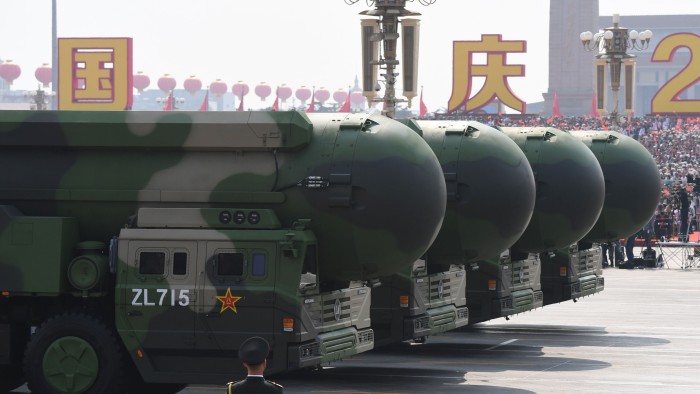
This article is an on-site version of our FirstFT newsletter. Subscribers can sign up to our Asia, Europe/Africa or Americas edition to get the newsletter delivered every weekday morning. Explore all of our newsletters here
Good morning. In today’s newsletter we’re covering:
-
China’s rapidly expanding nuclear arsenal
-
What the Honda-Nissan talks mean for corporate Japan
-
The leftwing firebrand who could be South Korea’s next leader
China has increased its arsenal of operational nuclear warheads to 600 from 500 in just a year, as the People’s Liberation Army continues a rapid expansion of its forces, according to the US defence department.
In its annual “China Military Power Report”, the Pentagon said the PLA had expanded its arsenal by 20 per cent in the 12 months from mid-2023 and was on track to have 1,000 operational warheads by 2030. Beijing has not denied increasing the size of its nuclear forces but dismisses US concern about the issue.
The report, which is mandated by Congress, comes as president-elect Donald Trump prepares to take office in January. Defence experts are waiting to see what approach he will take on China and Taiwan.
US officials believe President Xi Jinping has ordered the Chinese military to develop the capability to invade Taiwan by 2027, the centenary of the PLA’s founding. The defence official stressed the Pentagon did not believe an attack on Taiwan was “imminent or inevitable” and said the US had “deterrence today that’s real and strong”.
The report said the PLA had made “uneven” headway towards its modernisation goal for 2027, adding that a new “wave” of corruption in the Chinese military’s senior ranks “may have disrupted” progress.
Read more from the Pentagon’s report — and see more news on US-China relations:
And here’s what else we’re keeping tabs on today:
-
Monetary policy: Japan and the Philippines announce interest rate decisions.
-
Vietnam: Hanoi hosts a large defence expo as it looks to diversify suppliers outside the former Soviet bloc.
Five more top stories
1. Exclusive: Microsoft bought twice as many of Nvidia’s flagship chips as any of its largest rivals in the US and China this year, as OpenAI’s biggest investor accelerated its investment in artificial intelligence infrastructure. Here’s how Microsoft’s chip hoard has given it an edge in the global AI race.
2. The Federal Reserve cut its benchmark interest rate by a quarter of a percentage point but signalled a slower pace of easing next year. Wall Street stocks dropped sharply after the decision and the dollar jumped to a two-year high.
3. UK chancellor Rachel Reeves will next month lead a delegation of top bankers to Beijing to seek closer ties across a range of financial services, while quietly sidelining security fears. Read more about Reeves’ “pragmatic” approach to China, which has been complicated by a scandal over alleged Chinese spying in the UK.
-
China spy scandal: Tengbo Yang, a Chinese man who became a confidant of Prince Andrew, allegedly worked for a senior part of China’s hierarchy that Beijing calls “its magic weapon”. But this week in London, that weapon spectacularly backfired.
4. Shares in Japan’s Kioxia rose 10 per cent on its first day of trading in Tokyo, with private equity group Bain Capital’s listing of the lossmaking chipmaker finally getting off the ground. The road to listing has been tumultuous, as previous plans to float the company were aborted and a sale of the business collapsed. Here’s more on the long-awaited IPO.
5. Russia’s FSB security agency has arrested a man suspected of assassinating a top general in Moscow yesterday. The agency said an Uzbek suspect was offered $100,000 and safe passage to an EU country to carry out the attack.
News in-depth

The outcome of merger talks between Honda and Nissan and the potential creation of the world’s third-biggest carmaker will reverberate throughout Japan’s economy, say analysts. A decision to consolidate could force hundreds of other Japanese companies in other sectors to look around them and decide that dealmaking may be the only route to survival.
We’re also reading . . .
-
South Korea: A leftwing firebrand who narrowly escaped being stabbed to death in January is ending 2024 as the clear favourite to be the country’s next leader.
-
Shadow war: The assassination of a top Russian general was led by Ukraine’s brazen state security service, the SBU, which emerged from the Soviet Union’s KGB.
-
Bending the knee: Whether they voted for him or not, executives from Hollywood, Wall Street and Silicon Valley have been rushing to pay tribute to Donald Trump.
Chart of the day
AstraZeneca’s sales in China have been hit by the arrest of its country president Leon Wang, say company insiders, as local hospitals shun purchasing drugs from the company. Wang’s detention represents a dramatic reversal of fortunes for AstraZeneca in China, where it is the largest foreign drugmaker by sales.

Take a break from the news
Pop critic Ludovic Hunter-Tilney looks back at this year’s best album releases, including Charli XCX’s summer hit Brat, Kim Gordon’s second solo outing The Collective and Ka’s “hypnotic” The Thief Next to Jesus.

Thank you for reading and remember you can add FirstFT to myFT. You can also elect to receive a FirstFT push notification every morning on the app. Send your recommendations and feedback to [email protected]
Recommended newsletters for you
One Must-Read — Remarkable journalism you won’t want to miss. Sign up here
Newswrap — Our business and economics round-up. Sign up here
#China #continues #rapid #expansion #nuclear #forces #Pentagon
